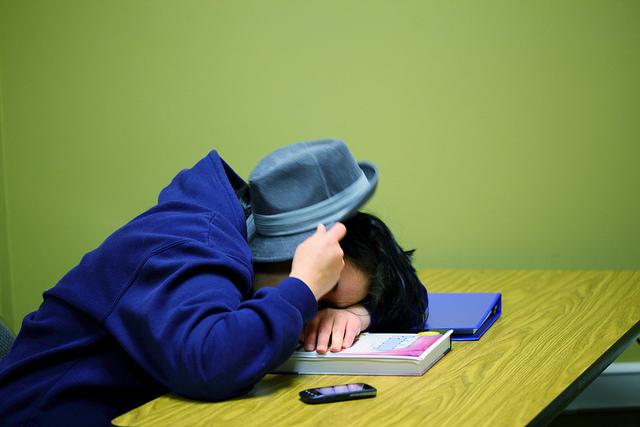Sheepless Nights: Sleep Deprivation in Students
Count backwards from one hundred or take a warm glass of milk before bed; falling asleep should be as easy as 1-2-3. Think back to the past several weeknights: have you had the recommended seven to nine hours of sleep teens to young adults are supposed to be having? The common answer among high school students is “no.”
Dr. James B. Maas, a Cornell University psychologist and sleep expert, claims that most teens “become walking zombies because they are getting far too little sleep.” The same article by the American Psychology Association reports that “according to Wolfson and Carskadon’s 1998 study, 26 percent of high school students routinely sleep less than 6.5 hours on school nights, and only 15 percent sleep 8.5 hours or more.” As the number one cause of traffic accidents among young and new drivers, it’s near impossible to say this issue isn’t an alarming one. So what can be done to feel less like a walking corpse when that alarm goes off in the morning?
One of the biggest tricks recommended by many experts in the field is to turn off electronics. About an hour before bed, try to avoid looking at any artificially lit screens, such as televisions, computer monitors, phones, or iPods.
Listening to relaxing music, reading, or studying off good, old fashioned paper are great ways to get your mind to settle down before taking the plunge into the rapid eye movement phase of sleep. R.E.M. sleep is the first stage we enter, in which dreams occur. As the brain is often still processing information from a flickering screen for up to half an hour after the device is turned off, using these devices immediately before bed can have a lasting impact on the brain’s ability to fall into the deeper, more restful stages of sleep.
Waking up before the sun isn’t a part of your body’s natural programming. When it’s dark out, the body releases a hormone to tell you to get in bed and rest your sleepy head. Some people find use in “reprogramming” their bodies by taking a sleep aid hormone sold over the counter at nearly any drug store: Melatonin. Consult your doctor about taking small doses of the naturally-occurring hormone for a short time span around the same time every night, about 45 minutes before sleep, and soon your body will be re-regulated to start making the hormone on its own at that time.
If a visit to Rite Aid just doesn’t sound right for you, sometimes all it takes is good, old fashioned endurance to force your body to start saying “lights out” earlier. Lying down in a dark room with little to no sensory stimuli is a good way to calm your brain before bed. There are the classic tricks, like counting and doing somewhat complicated mental math to fatigue yourself, but if you’d rather not bore yourself to sleep, some people find more active uses of their imagination to be helpful.
Trying to remember everything you did that day from the moment you woke up, and walking through every event in as much detail as possible, is a good way to tucker yourself out before drifting off. The plus to this method is that it can help gain study time, since it seems near impossible to get to bed at a good hour while still properly preparing for all class work the next day.
Some people tell themselves stories at night, like self-made comics or TV shows. This is less boring, some people find, with the added benefit of night being, for many, the most creative time of day. You might think up some pretty cool stories that leak their way into your dreams. Some people keep notebooks beside their beds to record ideas and dreams that come to them that they want to remember.
The biggest issue faced in the 21st century, is that sleep isn’t seen the way it used to be. Regarding ancient texts such as Shakespeare and Greek poetry, sleep was seen as an almost religious experience. In today’s world, it’s seen as a waste of time. To get the sleep we need, first we have to return to the mindset that it is good and worthy and important, and return to “Nature’s soft nurse.”




